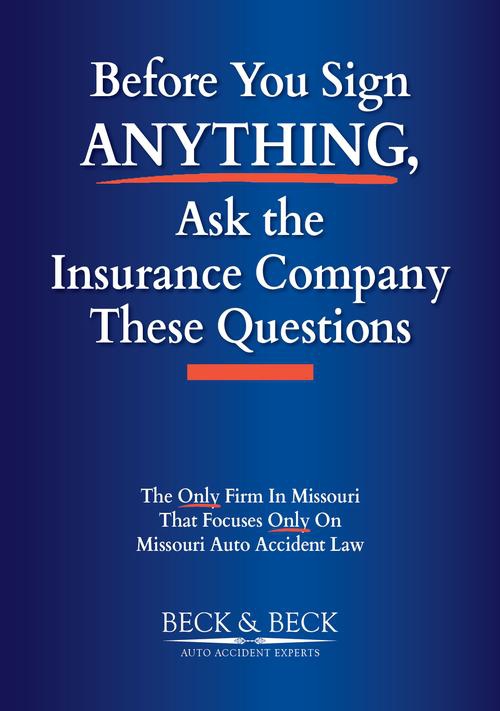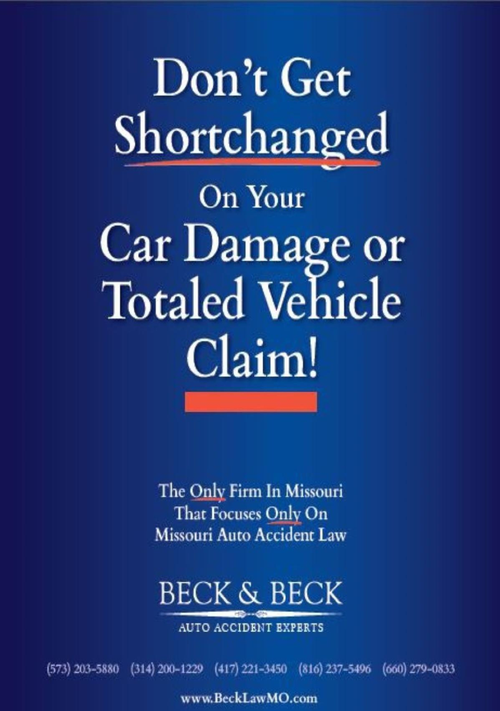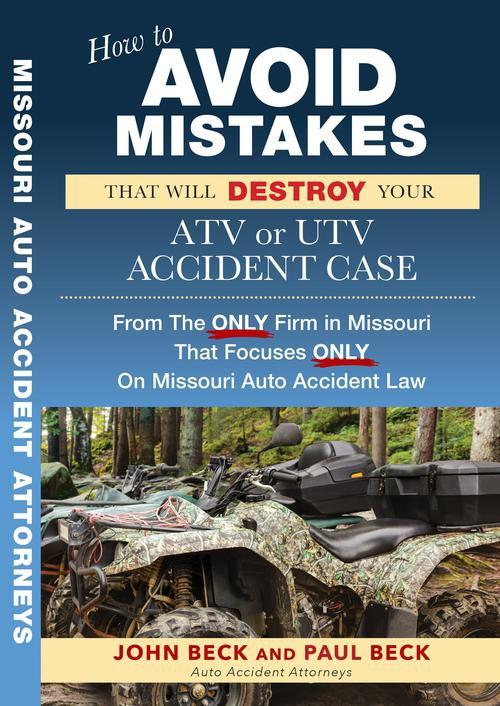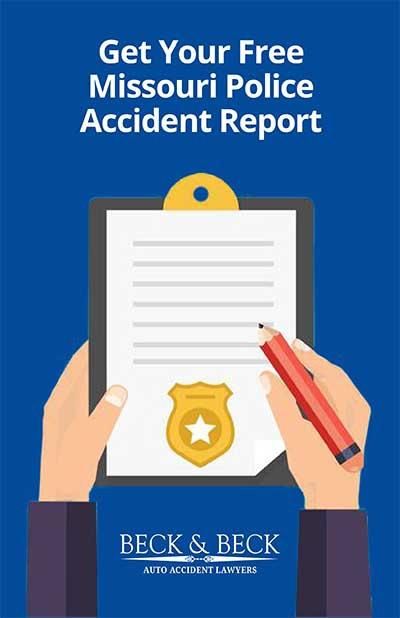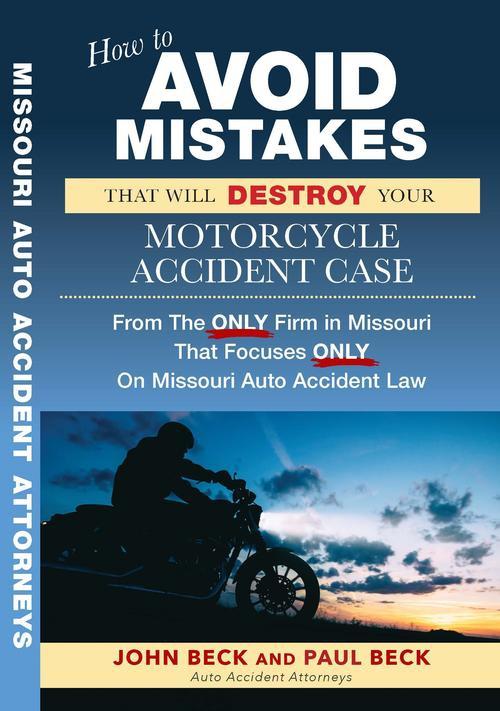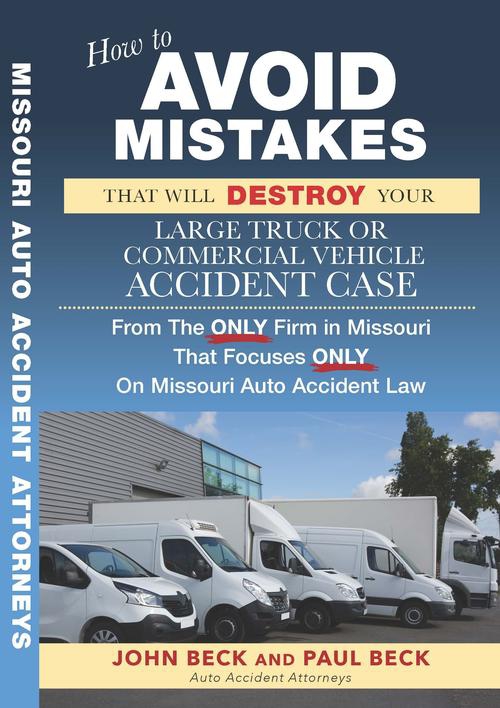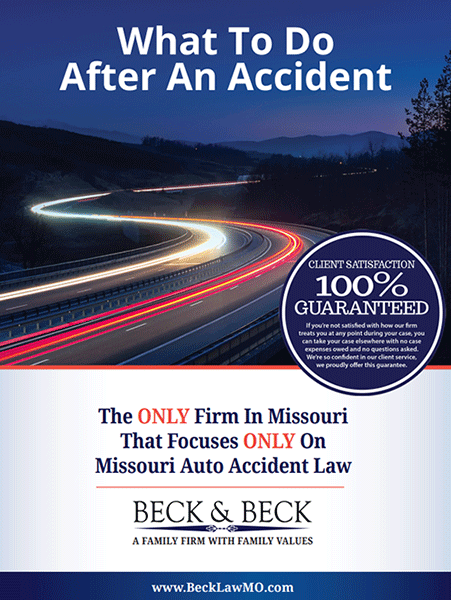Driving requires full attention and awareness. Anyone behind the wheel in Missouri has a duty to be alert and in control, including knowing when they’re too tired to drive.
Drowsy drivers put everyone on the road at risk, and these types of crashes can be just as dangerous as those caused by alcohol or distraction.
At Beck & Beck Missouri Car Accident Lawyers, we’ve spent over 35 years handling this type of car accident case across Missouri. If you were hurt and believe the other driver may have been too tired to drive safely, we can review your situation and explain your legal options.
Why Drowsy Driving Is So Dangerous
Driving while fatigued isn’t just risky—it’s often deadly. When a driver is drowsy, their ability to react quickly, judge situations clearly, and stay alert behind the wheel is significantly impaired. Fatigue reduces awareness, slows reflexes, and affects decision-making in ways similar to alcohol or distraction.
In Missouri and across the U.S., drowsy driving continues to contribute to avoidable crashes that leave people seriously hurt or worse.
The Hidden Toll of Fatigue
Although drowsy driving is a known danger, it remains underreported because there’s no reliable way to measure fatigue after a crash. Unlike alcohol or phone use, fatigue leaves no clear evidence at the scene. Still, the National Highway Traffic Safety Administration (NHTSA) estimates that more than 90,000 crashes each year involve a drowsy driver.
In 2023, at least 633 people died in crashes tied to fatigue, though experts believe the true number is higher. Many of these incidents involve a single vehicle running off the road with no signs of braking, which often points to a driver who briefly lost consciousness behind the wheel.
Peak Times for Drowsy Driving Crashes
Drowsy-driving crashes are more likely to happen during two windows of time: midnight to 6 a.m. and late afternoon. These hours align with natural dips in the body’s internal clock, or circadian rhythm, when alertness tends to drop.
Drivers who work night shifts, take long road trips, or get too little sleep the night before are especially at risk during these times. These types of crashes also tend to occur more frequently on rural highways, where long, uninterrupted stretches of road can lull a tired driver into zoning out.
Short-Term Fixes Aren’t Enough
While some drivers try to overcome drowsiness with caffeine, air conditioning, or loud music, these solutions are temporary at best. Studies show that even after drinking coffee, a severely sleep-deprived person may still experience “micro-sleeps”—brief moments of nodding off that can last several seconds.
At highway speeds, those few seconds of inattention are enough to miss an exit, drift across lanes, or cause a head-on collision with oncoming traffic.
Reducing the Risk
The only reliable way to avoid the dangers of drowsy driving is to get consistent, quality sleep—generally seven to eight hours per night. Drivers should avoid travel during peak drowsiness hours when possible, especially if they’re alone or taking medications that list drowsiness as a side effect.
Alcohol should always be avoided before driving, as it can compound fatigue. If you start to feel tired behind the wheel, pull over at a safe, well-lit rest stop for a short nap; even 20 minutes can temporarily restore alertness and help avoid a serious crash.
Reasons For Drowsy Driving Accidents
Drowsy driving accidents aren’t random—they often stem from a series of contributing conditions that impair a driver’s alertness. Below are the main reasons why these accidents happen and the circumstances that make certain drivers more vulnerable.
Work Pressure & Extended Hours
Long or unpredictable work schedules frequently disrupt natural sleep rhythms and leave drivers dangerously fatigued. Employees facing demanding hours regularly exceed safe driving limits. Pushing through fatigue simply to fulfill job responsibilities or meet deliveries is a common cause of crashes in Missouri and nationwide.
Sleep Disorders That Impact Safety
Sleep apnea and other sleep disorders significantly reduce the quality of rest, causing drivers to wake repeatedly throughout the night. Those with untreated sleep apnea are up to six times more likely to be involved in a crash due to drowsiness. When quality sleep is compromised, micro-sleeps—brief involuntary lapses into unconsciousness—can occur behind the wheel, often with no warning.
Medications, Substances & Alcohol
Various prescription and over-the-counter medications can cause drowsiness. When the sedative effects of these drugs combine with alcohol or illicit substances, the impact on alertness can be severe—even if consumed hours prior to driving. Many people underestimate how little sleep or mild side effects can affect their reaction times.
Daylight Saving Time & Circadian Rhythm Disruption
When clocks leap forward in spring, many drivers lose an hour of sleep and face darker conditions during the early morning commute. The Missouri State Highway Patrol has acknowledged that this sudden change can affect alertness behind the wheel.
Research shows an uptick in drowsy driving crashes in the days following the time change. Since early morning and late afternoon already align with natural dips in the body’s internal clock, the shift brought on by Daylight Saving Time can further increase the risk of fatigue-related accidents.
Warning Signs Everyone Should Recognize
Identifying early fatigue can prevent a tragedy. Key warning signs include:
- Lane drifting, such as swerving toward rumble strips
- Frequent yawning or heavy eyelids
- Inconsistent speeds, either unnaturally slow or fast
- Unconscious steering, like steering corrections without awareness
Seeing these signs—whether in yourself or another driver—means it’s time to pull over, rest, or change drivers immediately.
Complex Needs of High-Risk Drivers
As stated, certain groups face chronic fatigue due to job demands:
- Rideshare drivers juggling extended passenger hours
- Taxi operators navigating late-night shifts
- Commercial truck and delivery drivers with tight schedules
- Traveling business professionals logging long highway miles
Combined with household responsibilities or irregular sleep patterns, these conditions create a perfect storm for drowsiness-related crashes.
Proving Liability in Drowsy or Fatigued Driver Accidents
Proving that another driver was too tired to be on the road isn’t always straightforward. Unlike alcohol or texting, there’s no test that confirms drowsiness after a crash, and many drivers don’t even admit they were fatigued—especially if they don’t remember the moment of impact or believe they did nothing wrong.
That makes these cases more challenging, requiring a clear strategy backed by evidence.
Why These Cases Are Difficult
Drowsy driving accident claims are tough because there’s rarely a single, obvious piece of proof. A driver might not recall what happened or may deny fault altogether, and in some cases, they might even try to shift blame onto the injured party.
Insurance companies often take advantage of the lack of concrete evidence by denying claims outright or dragging them out in order to pressure victims into settling for less. These hurdles make it difficult to move forward without legal support.
How We Build a Drowsy Driving Case
Our award-winning Missouri car accident lawyers know how to build a case when driver fatigue is suspected. Over the years, we’ve developed a process to gather evidence that can help prove a driver wasn’t alert at the time of the crash, and we rely on multiple forms of investigation to strengthen your claim.
We may:
- Examine the crash scene – A lack of skid marks, lane drift, or a vehicle leaving the road completely may point to a driver who didn’t react at all, which is common in fatigue-related wrecks.
- Pull electronic vehicle data – Many modern cars store information on speed, braking, and steering input before the crash, and that data can reveal whether the driver attempted to avoid impact.
- Subpoena work or school records – If the other driver had just finished a long shift or early class, this can support a timeline showing they were likely sleep-deprived.
- Investigate medications – Prescription drugs with drowsy side effects might have contributed, and reviewing pharmacy or medical records helps clarify this factor.
- Request phone and purchase records – Cell activity, text logs, and even late-night credit card charges can help show how long a driver was awake before getting behind the wheel.
Why Legal Help Matters
Even if you suspect the other driver was drowsy, proving it requires evidence and experience. At Beck & Beck Missouri Car Accident Lawyers, our team knows what to look for and how to fight back when insurers try to deny responsibility.
If you were injured in a Missouri crash and believe fatigue played a role, we’re here to help you build a strong case and pursue the compensation you deserve.
Types of Accidents Tired Drivers Cause
Drowsy or fatigued drivers often lose control of their vehicles in unpredictable ways. Their slowed reaction times, impaired judgment, and inability to maintain focus frequently lead to high-risk collisions that could have been avoided under normal conditions.
Certain accident patterns strongly suggest the driver was too tired to operate a vehicle safely:
Overcorrection or Overcompensation Crashes
When a fatigued driver begins drifting out of their lane and suddenly regains awareness—triggered by a horn, a rumble strip, or even the sound of tires on the shoulder—they often react abruptly. This sudden overcorrection can cause the vehicle to swerve into oncoming traffic, roll over, or slam into nearby structures.
Larger vehicles like SUVs or trucks are particularly prone to tipping in these scenarios, while smaller cars may veer across multiple lanes before striking a guardrail, home, or tree.
Rear-End Collisions
Fatigue directly impacts reaction time. As a result, tired drivers may not notice when the vehicle ahead has stopped or slowed down. Even if they do notice, they might not respond quickly enough.
These delayed responses often lead to rear-end crashes, especially in slower traffic or at red lights. In some cases, the driver doesn’t even recall seeing the other vehicle stop.
Red Light and Stop Sign Violations (T-Bone Accidents)
Drowsy drivers may misinterpret or entirely miss key traffic signals. They might see a red light or stop sign but fail to mentally process it in time to stop. Others are so zoned out that they drive straight through intersections they navigate every day.
These lapses commonly cause T-bone crashes—when one car hits the side of another—leading to serious injury for occupants sitting in the impact zone.
Lane Departure and Off-Road Crashes
Another frequent outcome of driver fatigue involves drifting off the roadway. This can happen gradually, with no braking or correction, until the car strikes a pole, fence, or barrier.
In more populated areas, off-road crashes can involve sidewalks, homes, or pedestrians. These accidents are especially common in rural regions, where long, uninterrupted stretches of highway make it easier to nod off without warning.
Wrong-Way Driving
In rare yet extremely dangerous cases, a disoriented driver may enter a one-way street or highway ramp going in the wrong direction. These situations often lead to high-speed head-on collisions and typically result in serious or fatal injuries.
Sideswipe Accidents
Fatigue can also cause a vehicle to drift slightly into another lane. When this happens next to a car, truck, or motorcycle, it can cause a sideswipe collision. Even a minor impact can lead to either driver losing control, especially when traveling at highway speeds.
Single-Vehicle Rollovers
If a tired driver overcorrects after drifting or makes a sudden move on uneven terrain, the vehicle can roll. Rollovers often occur without another vehicle present and may involve steep ditches, soft shoulders, or curves. These crashes can be especially dangerous because they often happen at full speed and without warning.
Consult With Our Missouri Auto Accident Injury Law Firm
If you were injured in a crash caused by a drowsy or fatigued driver, it’s important to understand that these cases often require immediate attention and a careful legal strategy. Proving that someone was too tired to drive isn’t always simple, which is why having the right legal support can make a difference.
Beck & Beck Missouri Car Accident Lawyers are available 24/7 to assist you, answer your questions, and guide you through what comes next.
We offer free consultations, and there are no fees unless we win your case. Whether you’re facing medical expenses, time away from work, or the stress of dealing with an insurance company, we’re here to help you protect your rights and pursue the compensation you may be entitled to.
Don’t wait—contact Beck & Beck Missouri Car Accident Lawyers today to start your case review and take the next step toward recovery.
We’ve helped car accident victims in cities across Missouri, including: Independence, Kansas City, St. Louis, Jefferson City, O’Fallon, Florissant, Doniphan, Cape Girardeau, Springfield, and more.
Related Articles
Do I have to report a car accident to the police in Missouri?
Why you need a lawyer for your Missouri car accident claim
My car was totaled in an accident that wasn’t my fault in Missouri!

